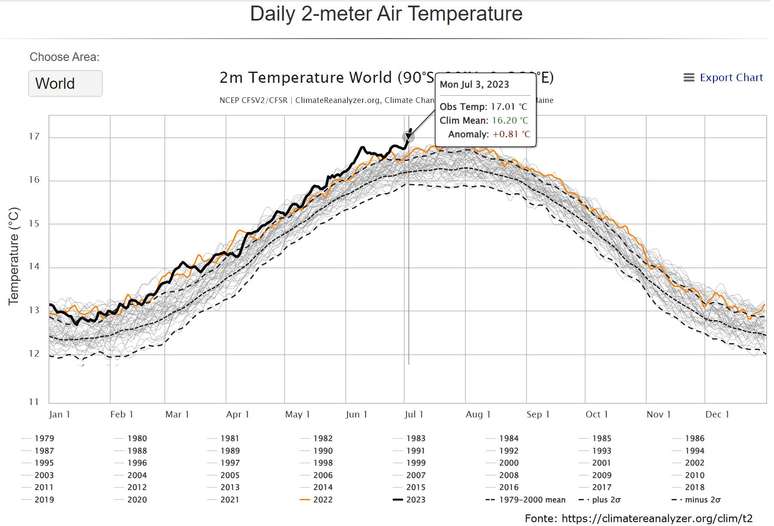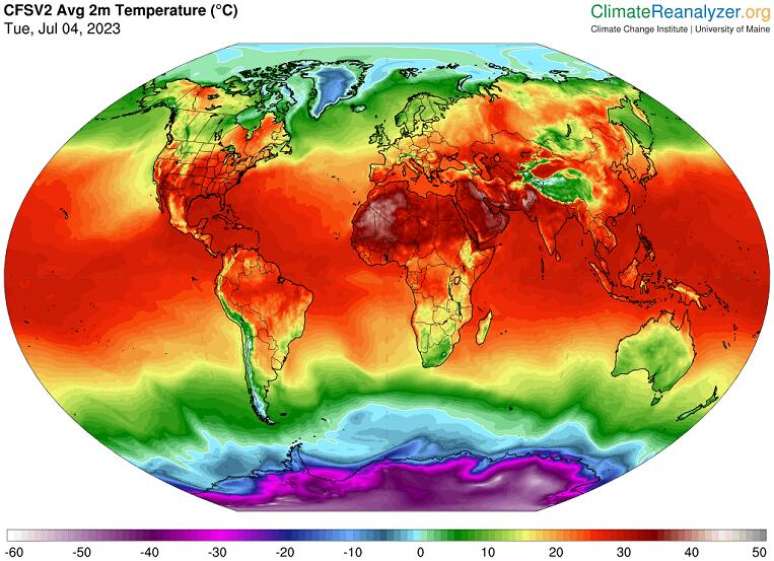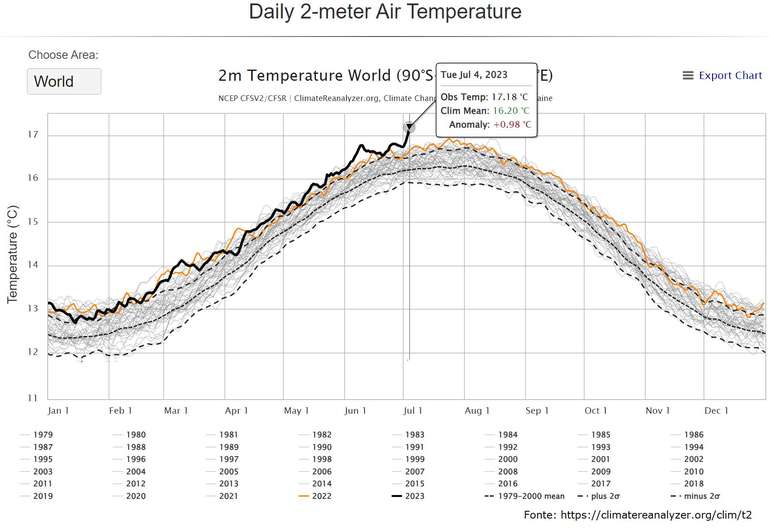Global climate experts warn that more global heat records should be observed by the end of the semester.
For the second day in a row, the global temperature of planet Earth has broken a record since it can be measured with instruments. On July 4, 2023, the global temperature reached 17.18°C, according to the Climate Change Institute, at the University of Maine, USA. This value was 0.98°C above the planetary average reference temperature, which is 16.10°C, calculated for the period 1979 to 2020
Earth’s average temperature was a record high on 7/4/23: 17.18°C (Source: https://climatereanalyzer.org/)
On July 3, the global average temperature had already reached 17°C (17.01°C) for the first time since instrumental measurements were taken.

On 7/3/23, the temperature of planet Earth passed the 17°C mark for the first time in history.
(Source: https://climatereanalyzer.org/)
The previous record for the highest average temperature on Earth was 16.92°C observed in 2016, considered the warmest year on record globally. In addition to the temperature increase trend associated with climate change that planet Earth is experiencing, due to the increase in greenhouse gases generated by human activity, an episode of the very strong El Niño phenomenon helped to increase the temperature in 2016.

Global Temperature Anomaly Map – 4-7-23
Record heat in the Northern Hemisphere
Heatwaves in the Northern Hemisphere started earlier this year, still in the fall and continue into early summer. Record temperatures continue to be recorded in Canada, the United States and parts of Europe.
Global climate experts warn that more global heat records should be observed by the end of the semester.
July 2023 began with a new very intense heat wave over northern Mexico and the southern states of the United States. In June, 100 people died in Mexico from high temperatures.
On July 3, heat broke a Canadian record, with 34.3C in Kuujjuaq, the all-time high since records began in 1947.
In June, according to the State Meteorological Agency (Aemet), the temperature broke a record of 44°C in Andalusia, in southern Spain.
Between 29 June and 3 July 2023, Nares Island in Greenland lost much of its snow and ice cover due to the heat.
But in the southern hemisphere, where it is winter, temperatures above the norm are also observed.
The North American east coast has also begun to experience a huge increase in heat.
Source: Terra
Rose James is a Gossipify movie and series reviewer known for her in-depth analysis and unique perspective on the latest releases. With a background in film studies, she provides engaging and informative reviews, and keeps readers up to date with industry trends and emerging talents.






